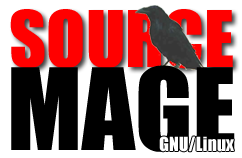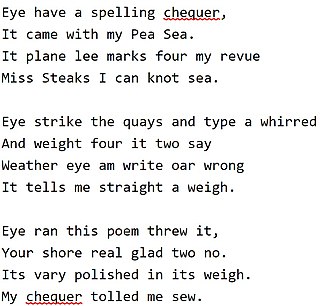 | |
| Developer(s) | Omid Kashefi [1] |
|---|---|
| Initial release | February 2, 2011 |
| Stable release | 3.0 / April 29, 2014 [1] |
| Preview release | 3.2 Beta / September 13, 2014 [1] |
| Written in | C#, Visual Basic for Applications [1] |
| Operating system | Windows |
| Platform | Microsoft Word, .NET Framework, Visual Studio Tools for Applications |
| Size | 14.4 MB [1] |
| Available in | Persian |
| Type | Spell checker, plug-in |
| License | GNU General Public License |
| Website | virastyar |
Virastyar (Persian : ویراستیار, meaning "editing assistant") is a Persian add-in for Microsoft Word that performs Persian spell checking, character standardization, Pinglish transliteration, punctuation correction and calendar conversion. [2] It can conjugate approximately 46,000 simple verb tense and use inflection and morphological rules to recognize possible extensions of a word. [3] It covers approximately 2,800 non-verbal inflections for nouns, adjectives, adverbs, prepositions, numerals, classifiers, and pronouns. [4]

Persian, also known by its endonym Farsi, is one of the Western Iranian languages within the Indo-Iranian branch of the Indo-European language family. It is a pluricentric language primarily spoken in Iran, Afghanistan, and Tajikistan, Uzbekistan and some other regions which historically were Persianate societies and considered part of Greater Iran. It is written right to left in the Persian alphabet, a modified variant of the Arabic script.
In computing, a plug-in is a software component that adds a specific feature to an existing computer program. When a program supports plug-ins, it enables customization.

Microsoft Word is a word processor developed by Microsoft. It was first released on October 25, 1983 under the name Multi-Tool Word for Xenix systems. Subsequent versions were later written for several other platforms including IBM PCs running DOS (1983), Apple Macintosh running the Classic Mac OS (1985), AT&T Unix PC (1985), Atari ST (1988), OS/2 (1989), Microsoft Windows (1989), SCO Unix (1994), and macOS.
Contents
Virastyar is mostly coded in Microsoft Visual C# using .NET Framework and is a free software, released under the GNU General Public License. [1]

C# is a general-purpose, multi-paradigm programming language encompassing strong typing, lexically scoped, imperative, declarative, functional, generic, object-oriented (class-based), and component-oriented programming disciplines. It was developed around 2000 by Microsoft within its .NET initiative and later approved as a standard by Ecma (ECMA-334) and ISO. C# is one of the programming languages designed for the Common Language Infrastructure.

.NET Framework is a software framework developed by Microsoft that runs primarily on Microsoft Windows. It includes a large class library named as Framework Class Library (FCL) and provides language interoperability across several programming languages. Programs written for .NET Framework execute in a software environment named the Common Language Runtime (CLR). The CLR is an application virtual machine that provides services such as security, memory management, and exception handling. As such, computer code written using .NET Framework is called "managed code". FCL and CLR together constitute the .NET Framework.

Free software or libre software is computer software distributed under terms that allow users to run the software for any purpose as well as to study, change, and distribute it and any adapted versions. Free software is a matter of liberty, not price: users—individually or in cooperation with computer programmers—are free to do what they want with their copies of a free software regardless of how much is paid to obtain the program. Computer programs are deemed free insofar as they give users ultimate control over the first, thereby allowing them to control what their devices are programmed to do.







